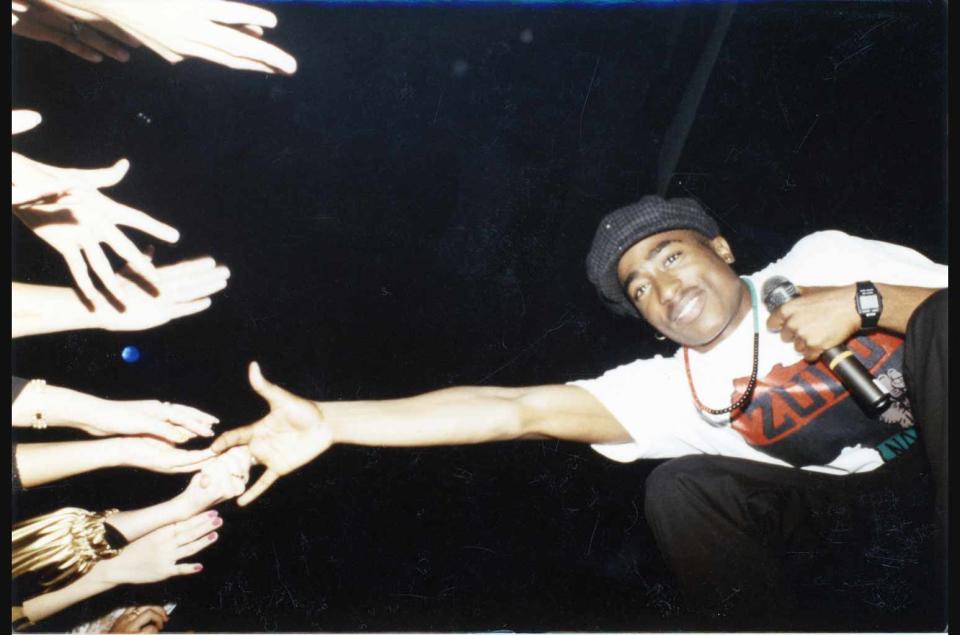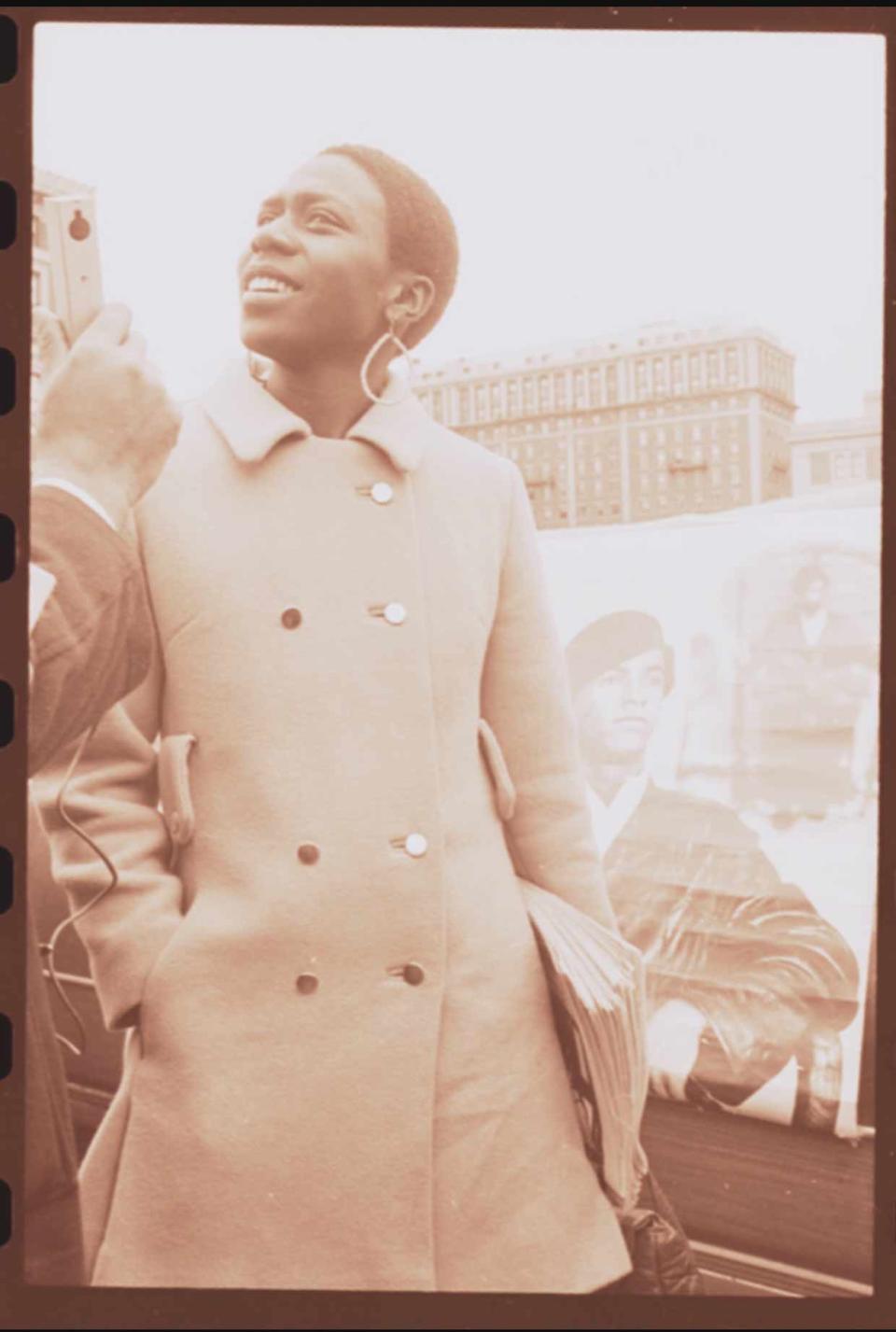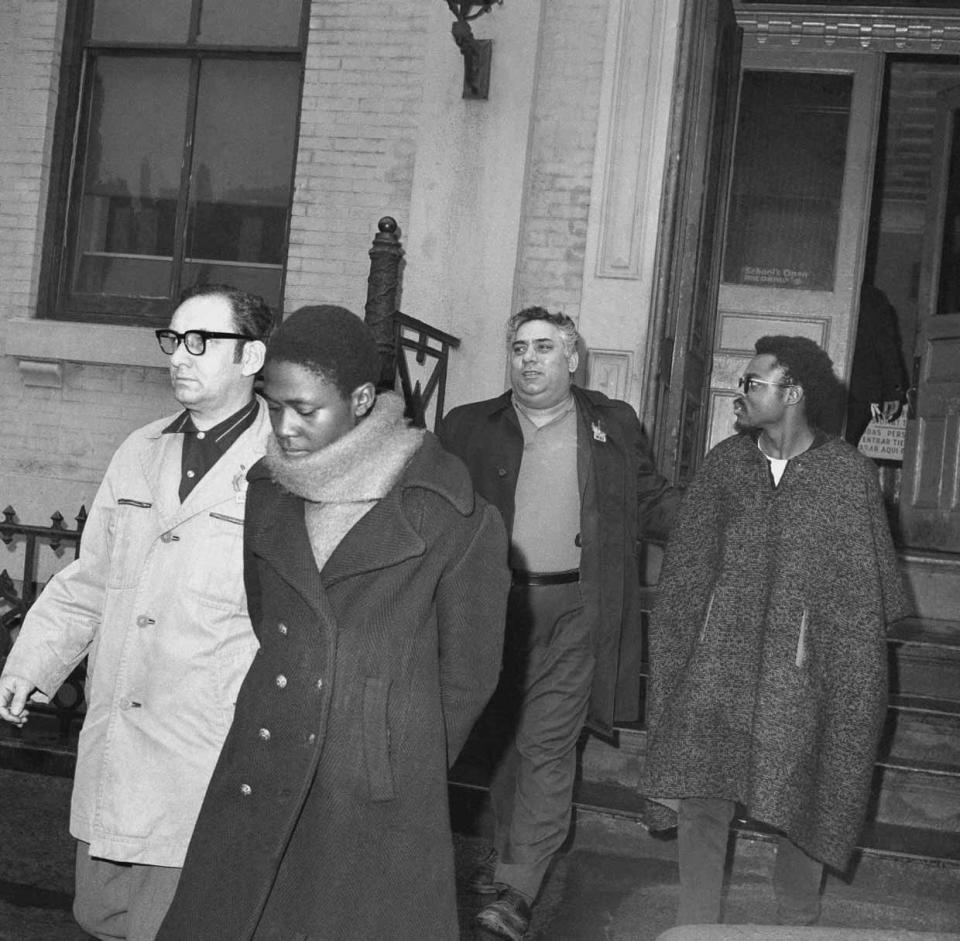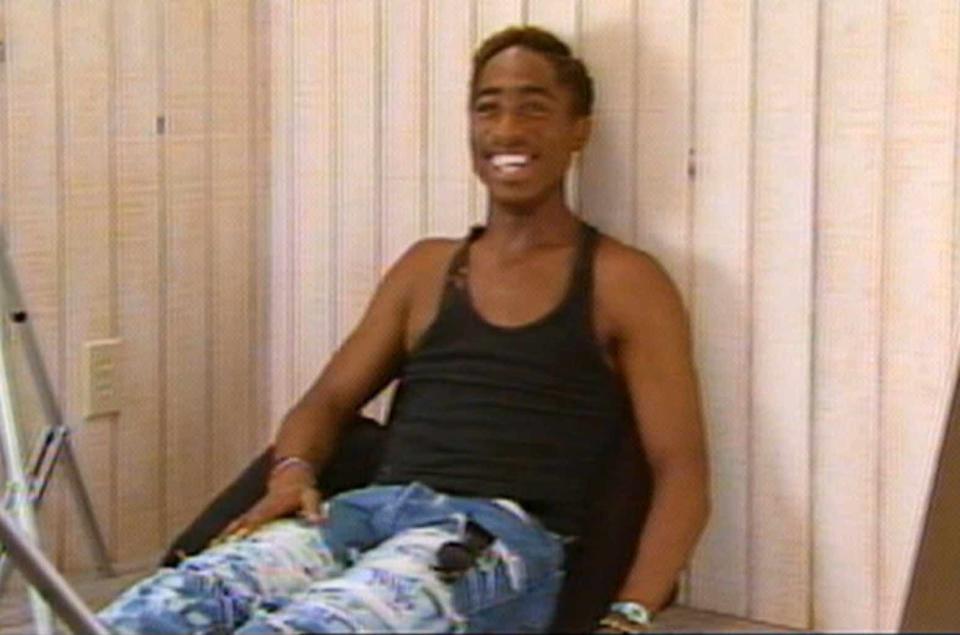How ‘Dear Mama,’ The Best Tupac Doc Yet, Got Made
- Oops!Something went wrong.Please try again later.
- Oops!Something went wrong.Please try again later.
- Oops!Something went wrong.Please try again later.
- Oops!Something went wrong.Please try again later.

Over the last two decades, documentaries about the late Tupac Shakur have become a cottage industry of sorts. The best of them — like Lauren Lazin’s Tupac: Resurrection, which largely draws from the artist’s own words, or Peter Spirer’s Thug Angel, which covers Tupac’s early life and his mother’s impact on him — have used insightful interviews and probing analysis to shed light on one of the most influential yet misunderstood music artists of the 20th century. Others, like A&E’s Who Killed Tupac? series or countless homemade YouTube productions, felt more like salacious true crime, less interested in Tupac the generationally gifted (if flawed) man, than in a gunned-down rap star caught amid the East Coast-West Coast feud of the ‘90s, dead at 25 after a Las Vegas shooting.
Allen Hughes’ Dear Mama — a long-gestating five-part series co-produced by Interscope Records and beginning on FX April 21 — is unlike any of the myriad Tupac docs before. Filled with rare footage, previously unheard vocal takes and significant interviews with those in Tupac’s close orbit — from family members to early managers to peers like Snoop Dogg — it presents a fully-realized portrait of both the musician and the man, while devoting equal screen time to the life of his mother, Afeni Shakur, who oversaw Tupac’s estate until her death in 2016. A singularly complex woman, Afeni was a member of the Black Panther party and part of the Panther 21, a group of activists who were tried and ultimately acquitted in a high-profile trial between 1970 and 1971, where Afeni both defended herself and cross-examined witnesses.
More from Billboard
Jonas Brothers Are Keeping Their 3 New Shows 'Secret': Here's How You Can Register
Wynonna Judd to Release 'Raw' Paramount+ Documentary, 'Between Hell & Hallelujah'

“There have been a million pieces done on him, but none of them really did the trick as far as understanding completely that narrative and that human being and the complexities and the dualities,” Hughes tells Billboard. “You talk about the surface stuff, but there was never a deep dive. I wanted to understand.”
Dear Mama comes at a time when Tupac remains a massively important figure in both hip-hop and popular culture at large. Since Snoop Dogg acquired Death Row Records, the legendary rap label’s discography has returned to streaming services — helping ensure that Tupac’s still-fresh, urgent music will be heard widely 30 years after its release. (Music executive Tom Whalley, who signed Tupac to Interscope Records and was a close friend of his, is the current trustee of the Shakur Estate; Shakur’s sister Sekyiwa is currently engaged in ongoing litigation with Whalley).
Music documentaries can easily fall into a number of traps — veering into hagiography, relying on the same handful of oft-quoted interview subjects, or zooming too far and coming across like a Wikipedia entry. Some directors have evaded those traps by honing in on a specific era of their subject’s life or career, as Alan Elliott and Sydney Pollack did with Aretha Franklin in Amazing Grace, or Peter Jackson managed in his Beatles series Get Back. Hughes had another idea: as he saw it, Afeni was not only a remarkable figure in her own right, but the key to doing her son’s story justice. “I said, ‘I’m down to do it, but I’d like to make it a five-part series, and the narrative would be as much about his mother as it is about him,’” Hughes explains.

Working with his twin brother, Albert, as the Hughes Brothers, Allen, 51, rose to prominence directing hit films like Menace II Society and The Book of Eli, as well as the controversial feature documentary American Pimp. He entered the documentary world solo with 2017’s The Defiant Ones, an acclaimed four-part look at the relationship between Interscope Records founder Jimmy Iovine and Dr. Dre. Whalley reached out to Hughes — who had worked with Tupac during his lifetime, notably on 1991’s brilliant “Brenda’s Got a Baby” video — following the success of that HBO series.
He was hesitant. Back in 1994, Tupac was set to play a starring role in Menace II Society, but an on-set argument with him and Hughes escalated into a physical fight between the two men, and associates of the artist beat the director. Tupac left the cast, and their relationship fractured. “When I sat with [the estate], I was reluctant to do [the documentary] because of my own personal reasons. I just didn’t know if I wanted to [deal with] what I was gonna be forced to, personally,” Hughes recalls. “I didn’t know if I wanted to go on that emotional journey, but I said, ‘Give me a few days, let me think about it.’” Ultimately, he decided not only to move forward, but to confront the incident head-on in Dear Mama — turning the camera on himself at the end of the second episode, and being interviewed about what transpired.
“He was young, Tupac was young, and if they both had to do it over again, they would have done things differently,” says Atron Gregory, a friend and former manager of Tupac’s who participated in Dear Mama. Gregory says he was initially surprised to hear Hughes would be directing, but upon reflection he realized that he was well-suited to take on the project.
Nick Grad, president of FX Entertainment, says he saw Hughes’ approach as a way to continue to build out the network’s burgeoning documentary branch, which includes Hip Hop Uncovered (about America’s criminalization of rap music) and a collaborative series with the New York Times, which recently included an episode about legendary producer J Dilla. But Grad says he more broadly saw Dear Mama as a perfect fit within FX’s wider slate of innovative projects.
“We decided if we’re going to get into documentary, we have to approach it using the same criteria that we do with our scripted shows,” he says. “How original can it be? Is this something that people are still hopefully going to be talking about in 10 years, in 20 years?”
Early episodes focus heavily on Afeni’s involvement with the Black Panthers in the late ‘60s and early ‘70s and how that affected young Tupac’s life. (Afeni was famously pregnant with Tupac while in prison.) Hughes explores similarities in mother and son’s temperaments — and the ways that malicious men within the Black liberation movement took advantage of them, while the U.S. government was simultaneously attempting to dismantle and punish anyone attempting to disrupt the status quo. “Early in episode one, [Tupac’s aunt] Glo talks about Afeni, saying she was a wonderer and a wanderer, [and] not aimlessly,” Hughes says. “Everyone describes Afeni and Tupac as twins.” As the series progresses, its focus shifts to how Tupac struggled to reconcile his activist ambitions with his celebrity, and the mental toll that took.

Though Dear Mama is comprehensive, Hughes says he is not trying to offer definitive moral conclusions. That meant handling the legal trouble in Tupac’s life by focusing on accounts from those who were there — an approach that leads to some of the series’ most powerful moments, like the vivid description (down to a recreation of the shooter’s stance) of Tupac shooting two off-duty cops, one of whom he’d seen hit a Black man, on Halloween 1993 in Atlanta. It also leaves some events more uncomfortably murky, like the 1994 New York case in which Tupac was convicted of first-degree sexual abuse, but ultimately acquitted of sodomy charges, following an incident with a young woman and some of his associates at the Parker Meridien hotel (Tupac spent several months in an upstate New York prison and at Riker’s Island, though he maintained his innocence). In Dear Mama, his aunt Glo says that Afeni “felt sympathy for the woman, but she never doubted that Tupac was innocent.”
“For all the alleged crimes he was caught up in or were litigated, if you weren’t a friend or family that was there, I’m not relitigating,” Hughes says of his approach. “It’s only through the eyes of people who were there or close to him and how it dovetails back into the dynamic with his mother. It’s not a normal documentary in the way of ‘Let’s go explore.’”

Dear Mama largely eschews hitting the well-trod beats in Tupac’s life. “I think that there was so much energy put on West Coast, East Coast, feuding, when Tupac went to jail in New York, and then when he [signed] with Death Row,” Gregory says. “‘California Love’ was so huge, and [his 1996 album] All Eyez on Me was so huge. I think people forget the first five years of his career. “ Hughes spends considerable time on Tupac’s adolescent days at the Baltimore School for the Arts; his time with early managers Gregory and Leila Steinberg; and his formative time spent on the road with the joyous Bay Area rap collective Digital Underground. That commitment to covering the often-glossed-over aspects of the artist’s life — in particular his relationship with Digital Underground — was a major reason Gregory agreed to participate.
When the series does explore Tupac’s signing with Death Row, interviews with Gregory and Black Panther-turned-manager Watani Tyehimba stress that Tupac was aiming to make positive changes in his life post-prison before Suge Knight became involved with the label. (With the support of Interscope, Knight famously helped bail a broke Tupac out of prison, on the condition that he sign a contract with the infamous label). At the time, members of Tupac’s inner circle were uncomfortable with the decision and the influence Death Row could have on him.
“He was happy, excited. He had money and he was free. But sometimes, progression is a digression, because the environment was bad for him,” says Snoop Dogg — a then-Death Row artist who advocated for the label signing Tupac — in Dear Mama.
Interviews in the doc also highlight the inner turmoil the artist himself experienced. The height of Tupac’s success came at a time when rap was vilified by politicians and the press, and Hughes shows the artist debating members of the media about whether he is a gangsta rapper himself. Clips like these of Tupac himself are revealing, none more so than when the artist talks about his dynamic with Afeni. “Do your mother’s feelings ever get hurt when you talk about how painful and sad you were as a kid?” an interviewer asks. “I always used to feel like she cared more about the people, than her people,” Tupac answers. “But I love her for that — that’s how I am.”
In the end, Hughes says, crafting Dear Mama made him reconsider his own relationship with his mother, who was a passionate activist in the ERA movement, and both challenged and shattered some of his own preconceptions about Tupac. “I thought I knew why he was paranoid because I knew the guy at 19 — you know, young Black male shit. Hennessy, weed, typical stuff, experiencing fame,” Hughes reflects. “What I didn’t understand was that at five, eight years old, the expectation [was] that sometimes he had assignments to sit on a stoop in Harlem and watch out for federal agents all day.
“Can you imagine: with the FBI’s COINTELPRO surveillance program, [which targeted] the Black Panthers and other Black organizations, you’re systematically seeing all of your fathers and mothers and aunts and uncles either killed or put in prison or ran out to some other goddamn country?” Hughes continues. “And you’re always being surveilled, you’re always being dogged by the FBI. Who wouldn’t be paranoid?”
Hughes speaks frequently about finding the “melody” in Tupac and Afeni’s life and letting the story flow from there — and cites a bit of wisdom given to him by a legendary collaborator that ultimately helped him shape Dear Mama into the rarest kind of Tupac project: something genuinely revelatory.
“Denzel Washington taught me something on The Book of Eli,” he says. “I [was] young, I’m trying to do it all. He says, ‘Listen, the universal stems from the specific.’ And it changed my life.”
Best of Billboard
H.E.R. & Chris Brown 'Come Through' to No. 1 on Adult R&B Airplay Chart
Anne Wilson's 'I Still Believe in Christmas' Crowns Christian Airplay Chart
Frank Sinatra, Eartha Kitt, Eagles & More: Here Are All 37 Holiday Songs on This Week's Hot 100

